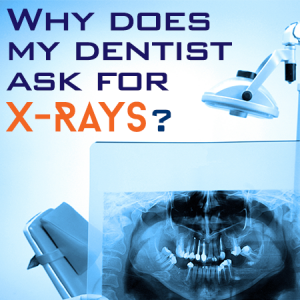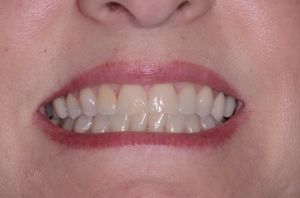The technology of dental medicine is advancing by the minute. There are now sophisticated techniques for diagnosing and tracking oral cancer, correcting crooked teeth in less than a year, treating periodontitis (advanced gum disease) without surgery, and much more. Yet, when it comes down to diagnosing issues and creating an effective treatment plan, nothing beats a fresh set of X-rays. Gilbert dentist Dr. Nathan Saydyk uses dental X-rays to see the whole picture, in order to keep your teeth healthy, bright, and beautiful.

What Are X-Rays?
X-rays have been around since 1895 when Wilhelm Conrad Röntgen first discovered that his cathode ray tube could penetrate black paper and cast shadows of solid objects. X-rays are on a shorter wavelength than visible light and pass through soft tissue in the human body, providing a detailed picture of what’s going on inside. Without X-rays, the treatment of everything from cavities to broken bones to cancer would be much more difficult. Beyond medicine and science, X-rays have useful applications across many fields.
Why Do I Need X-Rays?
The first step with every new StoneRidge Dental patient is a thorough examination and a set of X-rays, or dental radiographs. Although looking in your mouth and checking for plaque, tartar, and gum irregularities is a great start, X-rays are the key to diagnosing problems and designing the best course of treatment. Here are some of the reasons Dr. Saydyk performs dental X-rays:
- To detect tooth decay, jawbone damage, and injuries to tooth roots
- To observe the position of teeth and locate any crowding or impacted teeth
- To make sure children’s permanent teeth are growing properly
- To check for cysts, tumors, or abscesses
- To plan and coordinate treatment for severe cavities, root canals, dental implants, extractions, and orthodontics
Are Dental X-Rays Safe?
Dr. Saydyk understands concerns about radiation. However, dental X-rays use an insignificant amount of radiation in a small and controlled area. According to the American Dental Association, a set of two to four bitewing X-rays (for back teeth) represent a 0.005 millisievert (mSv, a unit of radiation) exposure. The average American is exposed to 3.2 mSv of environmental radiation each year. That means you would have to have about 600 sets of X-rays just to equal the level of natural exposure. Even so, the StoneRidge Dental team cares for our patients’ health with the best practices in minimizing radiation exposure, such as using lead aprons, high-quality technology, quick exposures, and selective imaging techniques. If you would like to see what dental X-rays can reveal about your smile, give us a call today!
The content of this blog is not intended to be a substitute for professional medical advice, diagnosis, or treatment. Always seek the advice of qualified health providers with questions you may have regarding medical conditions.
Devin Giron DDS
936 E Williams Field Rd. Suite 102
Gilbert, AZ 85295
505.303.1974
https://goo.gl/maps/hQJcdaDtuWL2



